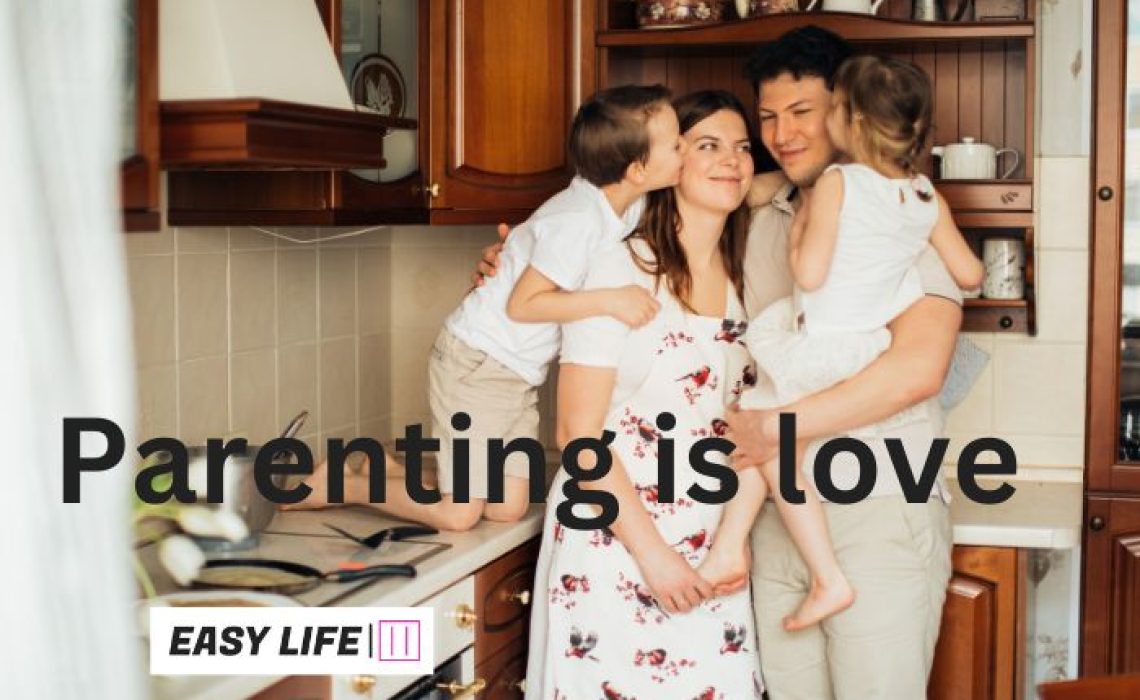Love: The most important ingredient in successful parenting is love. It is the connection that exists between parents and children that fosters a feeling of safety and belonging in the youngster. Love is not merely a feeling; rather, it is an action as well. Putting the health and happiness of another person ahead of one’s own is a choice that must be made. Children develop a robust sense of their own worth as well as a sense of value and respect when their parents demonstrate love via the behaviours that they do toward them.
Table of Contents
ToggleHere are some ways parents can express love to their children:
1. Spend quality time:
A great demonstration of love for one’s children is to give them one’s undivided attention and time. It demonstrates to them that they are important to you and that you take pleasure in spending time with them. Spending quality time with someone can consist of activities as uncomplicated as reading a book aloud or going for a walk in the park.
2. Show affection:
The act of physically touching someone else is a potent way to communicate love. Children are better able to feel loved and safe when they receive hugs, kisses, and other forms of physical contact. Even when they are older, it is critical to continue expressing affection on a consistent basis.
3. Provide a safe and supportive environment:
A vital component of showing love is creating an atmosphere that is secure and encouraging for the person you care about. When kids have a strong sense of security and support in their lives, they are more likely to flourish and develop a healthy sense of their own self-worth.
4. Encourage and support:
The expression of love can be greatly strengthened through the provision of encouragement and support. Parents that believe in their children and their capabilities model this belief for their offspring by providing them with encouragement and support. Children learn both confidence and a sense of their own worth as a result of this.
5. Set boundaries:
The establishment of limits is an essential component of showing affection for another person. It is important for parents to demonstrate to their children that they care about their health and safety when they establish firm limits for them. Children benefit from having boundaries because it helps them develop self-discipline as well as respect for others.
6. Communicate effectively:
When it comes to expressing love, having clear and effective communication is crucial. Parents are able to demonstrate to their children that they place significance on their ideas and emotions when they communicate successfully with their children. This assists youngsters in feeling heard and understood, which is critical for the development of a robust sense of self-worth in children.
7. Model positive behavior:
Parents serve as some of the most influential models possible for their offspring. When parents set a good example for their children by demonstrating positive behaviors like respect and kindness, they demonstrate to their children how to love and care for others.
In parenting, love is the driving force. It helps kids feel safe and included, which is crucial to their development. As parents show their love indeed, their children learn to respect themselves and others. Love is not merely a feeling; it is also a verb. When parents put their children’s needs above their own, they are demonstrating the deepest form of love.
Conclusion
Ultimately, parental love is what makes a family work. It manifests itself in things like giving one’s undivided attention, demonstrating affection, establishing limits, establishing clear lines of communication, and setting a good example for oneself. As parents show their love indeed, their children learn to respect themselves and others. Love is more than a warm fuzzy feeling; it’s a deed that can change people forever. As parents, we should take every opportunity to show our children how much they mean to us.










2 thoughts on “The Power of Love in Parenting: Expressing Love Through Your Actions”
Pingback: Single Mom: 10 Strategies to Conquer Life's Challenges - 2023
Pingback: Parental Responsibilities: Nurturing, Guiding, and Modeling